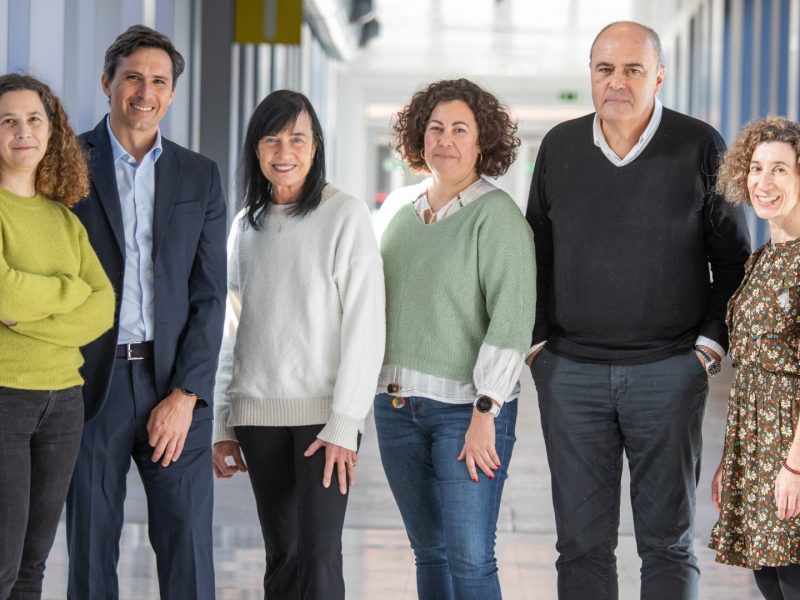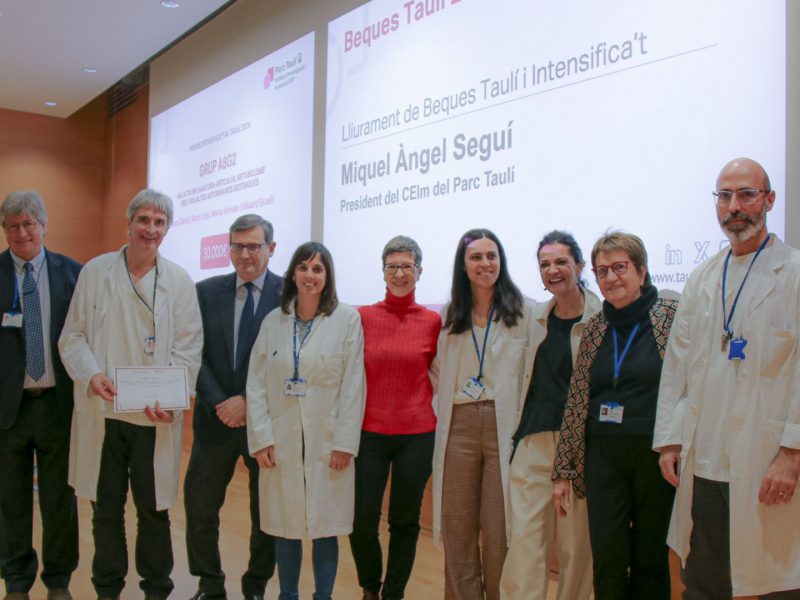
New therapy to avoid chemotherapy in lung cancer
- Post Tags:
- clinical trial
- cancer
- lung cancer
- research
- Posted In:
- Scientific outreach
- News
- Mireia Córcoles
- No Comments
- Study results demonstrate efficacy of new treatment combining two immunotherapy drugs in patients with metastatic lung cancer
- Current treatments, which are increasingly personalized, prove to be more effective, less toxic and offer better tolerance than oncology drugs
Oncologists want to stop prescribing chemotherapy and start treating in a more personalized way. He explains it the oncologist and researcher at the Parc Taulí Research and Innovation Institute (I3PT) Laia Vila. "We want to move forward to cure and prolong the survival of patients, but also offering a good quality of life".
If the field of oncology succeeds in reaching this goal, it is thanks to the efforts of researchers to know the biology of tumors better and better and to have more tools to deal with them. Specifically, with regard to lung cancer, Vilà's area of study, more and more is known and it is known that it is a very heterogeneous disease, with subgroups within the population. "In fact, the word 'lung cancer' does not reflect its complexity," he says. Thanks to these advances in knowledge, work is being done in different lines of research and great progress is being made in new treatments.
The advance towards a personalized medicine
One of the lines in which the focus is currently placed is the immunotherapy or targeted therapies, which allow to offer alternative treatments to chemotherapy, with the adverse effects it entails, and move towards a more personalized medicine.
"Chemotherapy is like killing flies in pipes. Obviously it is effective and there are times when we need it, because we need to see a big response, but thanks to research we know more and more about tumors and know that we can be more precise and less general. Therefore, if you treat the cancer that that particular patient has and you do it with an effective and low-toxic treatment, we are achieving the goals we are pursuing." all oncology is moving towards personalization and lung cancer is the flagship of precision medicine, as the oncologist explains.
All of oncology is moving toward personalization, and lung cancer is the flagship of precision medicine
"The I3PT is a center that is betting on carrying out trials of these types, which allow us to analyze the tumors a lot when they are diagnosed and determine specific biomarkers that allow us to select the best treatment".
The effectiveness of a new immunotherapy treatment
Vilà, together with fellow oncologist and researcher Júlia Giner of the biomedical cancer research group of the I3PT, is working on the TACTI-002 trial which seeks to know the effectiveness and safety of a new immunotherapy treatment for patients with metastatic lung cancer. Specifically, this international phase II trial, carried out in 50 centers, studies the results of the combination of two drugs, which act differently, with the aim of activating the immune system to act against the tumor and make answer
Results have recently been published showing that patients who receive this new treatment, their tumor decreases by 40% and in more than 70% of patients the disease is controlled. "We were doing well with the immunotherapy treatment with a single drug, but if we add this second immunotherapeutic drug, since we act in two different ways, the immune system is more powerful", explains Vilà, who emphasizes that "the benefit is observed in all patients, and we all see that the treatment is well tolerated".
This new treatment shrinks the tumor by 40% and controls the disease in more than 70% of patients
The conclusions have been presented in Annual Congress of ASCO, the most important in the world in oncology, and, as stated by principal researcher of the study, Enriqueta Felip (VHIO), "demonstrate that this chemotherapy-free drug combination is safe and, in addition, shows encouraging antitumor activity that warrants further investigation."
The next phase of the study will consist of comparing this new treatment with the standard. "We are now looking at whether this is effective and non-toxic, then we will have to check whether it is better than the current treatment and therefore whether we can avoid chemotherapy. "This is very good news, but there is still a long way to go in the field of personalized medicine", concludes Vilà.
Study reference
Enriqueta Felip, Margarita Majem, Bernard Doger, Timothy D. Clay, Enric Carcereny, Igor Bondarenko, Julio A. Peguero, Manuel Cobo-Dols, Martin Forster, Grygorii Ursol, Gema García Ledo, Laia Vilà, Matthew Krebs, Wade T. Iams , Christian Mueller, Frederic Triebel. "A phase II study (TACTI-002) in first-line metastatic non-small cell lung carcinoma investigating eftilagimod alpha (soluble LAG-3 protein) and pembrolizumab: Updated results from a PD-L1 unselected population". ASCO Annual Meeting. 2022. https://meetinglibrary.asco.org/record/209503/abstract






Leave a Reply